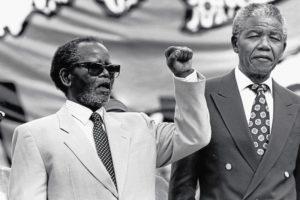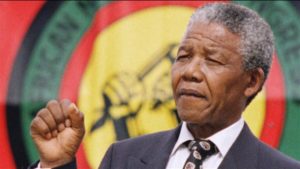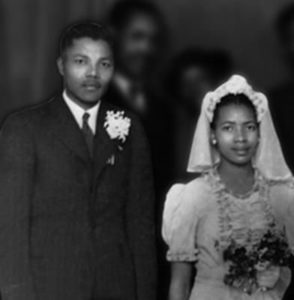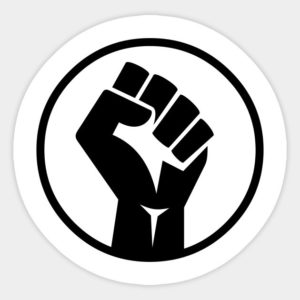MEET ARIANA
Nelson Mandela otherwise known as Madiba (isiXhosa for “Father of the Nation”), has been immortalized in the hearts and minds of millions of Pan-Africans and pacifists around the world. He is respected and highly revered for his efforts to ending Apartheid after being imprisoned for 27 years. Many may have chosen revenge if in their shoes, Madiba chose peace.
But even Madiba erred and made his mistakes. Just as we all are, Madiba was human. The journey of life is not about perfection but learning from your mistakes as you make them along the way. Madiba taught us compassion, love and strength but there were times when he was unfaithful and betrayed others.
Here are 5 life lessons we can learn from Madiba:

1. Collaboration
Madiba was a very humble man and never allowed himself to be accredited with the term that he ended Apartheid. He was always adamant that it was a collective effort to bring a racially oppressive regime to an end. He was a lawyer and opened the first black attorney firm in South Africa – Mandela and Tambo in 1952. He worked with grassroots movements and other freedom fighters both before and during his 27 year incarceration. Mandela believed the dismantlement of racial oppression, inequality and injustice was not one person’s fight.
The lesson of collaboration should encourage us to work with others to get further ahead.
“If you want to go quickly, go alone. If you want to go far, go together.” – African Proverb.
2. Hope
“The struggle is my life. I will continue fighting for freedom until the end of my days.” – Nelson Mandela

For most of his life Mandela worked towards ending Apartheid. Even after he retired from public life and didn’t run for a second term in 1999, Mandela dedicated the rest of his days to charitable and human rights work. In his autobiography “Long Walk To Freedom”, Mandela talks about fundamentally being an optimist and that there were dark moments when his faith in humanity were tested but he didn’t give up on himself nor despaired — he never gave up hope. His hope coupled with his handwork and determination led him to see the end of Apartheid and become the first democratically elected black President of South Africa in 1994.

3. [Lack of] Forgiveness
Madiba is widely known for forgiving his enemies and oppressors and during his time in prison he even learned Afrikaans; the language of his oppressors because he believed that was the first step to forgiveness. Forgiveness was important to Mandela if he were going to be able to move on and build the South Africa he envisioned especially in a post-Apartheid society.
Though Madiba may have forgiven his oppressors and enemies, one must wonder why he was unable to forgive his second wife anti-Apartheid activist Winnie Mandela. It is said during his time of imprisonment, Winnie was unfaithful to Nelson and he was unable to forgive her and separated shortly after his release in 1990 and finally divorced in 1996 after 27 years of marriage.
However Madiba wasn’t a saint (and he has mentioned that many times in interviews and public statements). Mandela was unfaithful to his first wife Evelyn Mase who was a nurse. During a statement after his prison release, Mandela alluded the accusations to be untrue but biographers later found evidence that indeed proved them to be true, stating Mandela had affairs with his secretaries and even an activist. It was even rumored that Mandela and one of his secretaries had a child together.
4. Documentation
Mandela kept a clear account of his life through his journaling. This was very important during his time in prison when “study time” was a privilege and he was only allowed to send letters out once every 6 months. He would write out his entries and place them in plastic bags and bury them in the prison vegetable garden. Mandela went on to author many books, with his most known ones being Long Walk To Freedom (1994), A Conversation with Myself (2010) and A Prisoner In A Garden (2005).
Documentation and journaling day to day events of your life is one trait a lot of successful people have. It gives you an opportunity to reflect better, learn from your mistakes and grow. If you haven’t journaled before, consider giving it a chance!

5. Leadership
After 102 years since his birth July 18 1918, Mandela is still revered as one of history’s leaders. He used peace, love and tact to work with people of all walks of life to end Apartheid and to create a long lasting legacy. Though the political party (African National Congress) he was a part of was liberal, Mandela himself was more of a socialist. Under his leadership he was able to improve the education and health sector as well as social welfare.
Unlike fellow activist such as Robert Mugabe of Zimbabwe that Mandela fought beside for African liberation, social justice and equality, Mandela knew when to throw the towel in. He did not overstay his welcome in the presidential seat, after his first term he decided not to run for a second term. In 1999, he handed the baton to his deputy Thabo Mbeki.
This single act (and countless others) signifies the true meaning of leadership — it being sustainable. We may never see another Mandela in our lifetime or in this world again, but a leader who can serve the people and step down and still dedicate his/her life to the greater good would be a refreshing change especially now as we encounter another global wave of racial discrimination, social injustice and neocolonialism.






